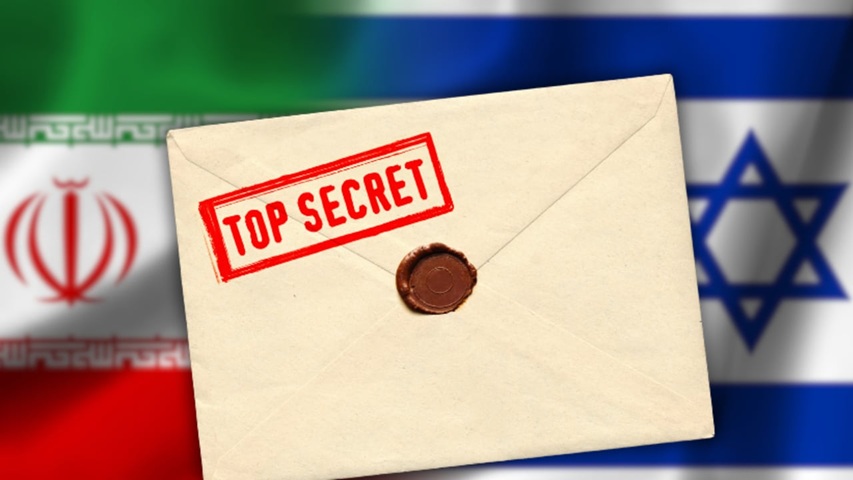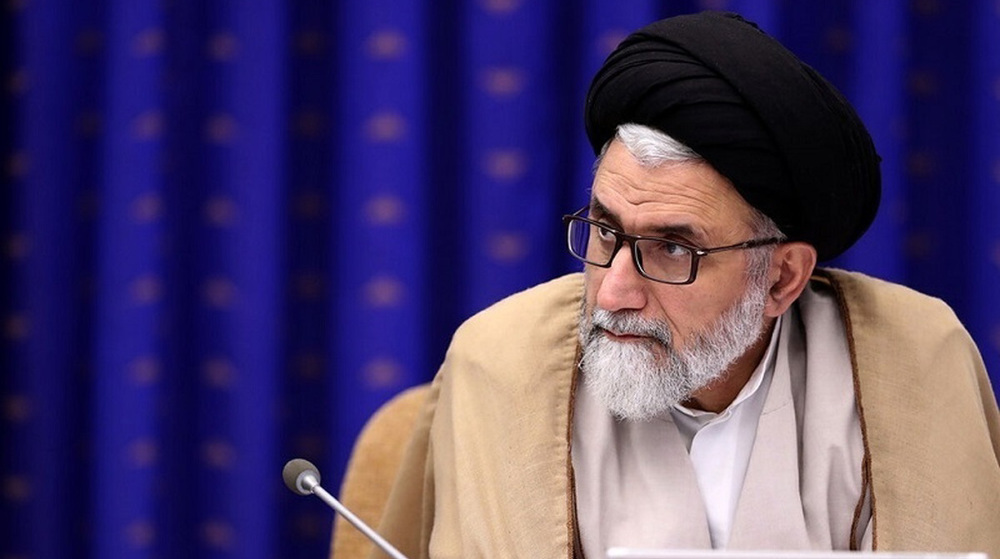Iran claims it obtained Israel’s nuclear secrets in a covert op. What’s in the leak, and why does it threaten Middle East stability? Full analysis.
There is a secret in West Asia that everyone knows, but no one officially admits: Israel’s nuclear weapons. For decades, Israel has adhered to a policy of “nuclear ambiguity,” refusing to confirm or deny its possession of nuclear arms. Yet, the intelligence community, regional actors, and the broader world understand the reality beneath this silence. Now, Iran claims it is ready to expose “Israel’s nuclear secrets”—and the timing could not be more explosive.
What Are Israel’s Hidden Nuclear Secrets?
Israel’s “poker-face strategy” has shaped Middle Eastern security for more than fifty years. While public estimates place Israel’s arsenal between 80 and 200 nuclear warheads, official statements remain elusive. This deliberate ambiguity has served as both shield and deterrent, keeping adversaries guessing while avoiding the scrutiny and obligations that come with open acknowledgment.
But ambiguity is only effective as long as the cards remain hidden. Iran, long Israel’s regional rival, now says it intends to reveal what has always lurked in the shadows. Iranian officials have announced that they are in possession of a trove of highly sensitive Israeli documents—potentially exposing the full extent of Israel’s nuclear secrets and its closely guarded defense infrastructure.
Inside the Alleged Intelligence Haul
According to Iranian intelligence minister Esmail Khatib, Iran’s intelligence services have collected thousands of classified documents, images, and video recordings tied to Israel’s nuclear sites, defense capabilities, and international ties. This cache, described by Khatib as a “treasure trove,” reportedly includes strategic, operational, and scientific intelligence not only about Israel but also about its relationships with the United States, Europe, and other global actors. For the first time, a regional adversary claims to hold hard evidence of Israel’s nuclear secrets.
Iranian news reports suggest that the documents were obtained some time ago during a covert operation and were only announced now to ensure safe transfer and verification. The intelligence minister emphasized the importance of protecting both the methods of acquisition and the information itself: “We protect both the methods of transfer and the documents themselves and that’s why it took time to announce them—to ensure they could be transferred to the country with full security. Naturally, the methods of transfer will also remain confidential and protected.”
The Mechanics of Espionage
According to Iranian media, this intelligence was not acquired by chance. It is reportedly the result of a long-running covert operation, involving sophisticated infiltration and access to Israeli sources. Two Israelis, Roy Mizrahi and Eliad Moissa (sometimes identified in Western media as Roy Mizrai and Al-Matias), have been named as alleged agents who helped gather and transfer the sensitive material. Iranian reports claim the duo received instructions through encrypted channels like the Telegram messaging app and were paid using cryptocurrency—methods that have become hallmarks of modern espionage. Their arrests are believed to be directly linked to the leak of Israel’s nuclear secrets.
Also Read: Israeli Cyber Operations: How Western Tech Lost the World’s Trust
The Israeli government, for its part, has arrested both individuals on suspicion of collecting intelligence on behalf of Iran. Israeli authorities have described these arrests as the latest episode in what they see as a growing Iranian espionage campaign inside the country. Both suspects, who reportedly attended the same high school and had no prior criminal record, are now central figures in a shadow war that has often played out quietly, but may now be moving into the open.
A Pattern of Penetration
This is not an isolated incident. Earlier this year, another Israeli citizen was arrested for allegedly attempting to sell nuclear secrets—reportedly related to Israel’s Negev nuclear research center—to Iranian intelligence. In January, two Israeli army reservists, one of them a former member of the Iron Dome Missile Defense Unit, were charged with handing over classified data, including footage of the Iron Dome system in operation. Both cases involved the risk of exposing Israel’s nuclear secrets.
These breaches are not mere embarrassments. They come at a time when tensions in the region are already at a boiling point. For instance, just weeks before Iran launched a missile barrage in October of last year, security forces uncovered the Iron Dome data leak. That attack saw over 180 ballistic missiles fired, with several reportedly striking Israeli air bases and other sensitive sites.
Shadow War
The current flare-up is only the latest chapter in a long-running covert conflict between Israel and Iran. In 2018, Israel’s Mossad pulled off a daring operation in Tehran, reportedly seizing thousands of documents that detailed Iran’s nuclear weapons program. That intelligence coup was widely believed to have influenced the Trump administration’s decision to exit the 2015 Iran nuclear deal.
Retaliation and counter-operations have defined this relationship. Since 2007, six Iranian nuclear scientists have been assassinated, operations for which Iran blames Mossad—although Israel has never claimed responsibility. On the other side, Iran has ramped up its own efforts, allegedly recruiting insiders within Israel and launching cyber attacks.
Each side seeks to penetrate the other’s most protected secrets, all while maintaining official deniability and public ambiguity. But Iran’s recent claims, if substantiated, would mark the first time that a significant cache of Israel’s nuclear secrets has been captured and potentially exposed by an adversary.
Why Now?
The timing of Iran’s announcement appears far from accidental. The UN’s nuclear watchdog, the IAEA, is about to convene to discuss unresolved questions regarding Iran’s own nuclear program—questions that have become more urgent as Iran’s uranium enrichment approaches weapons-grade levels. Western countries, frustrated by Iran’s lack of transparency, are preparing a proposal to declare Iran non-compliant with its obligations under the 2015 nuclear deal.
Meanwhile, Iran has rejected a recent U.S.-backed proposal to revive negotiations, with Supreme Leader Ayatollah Ali Khamenei declaring that halting uranium enrichment is “100% against Iran’s interests.” The Americans’ first demand, he argued, is for Iran to give up a nuclear industry altogether—a demand Iran’s leadership finds unacceptable.
Iran’s decision to publicize Israel’s nuclear secrets just as international pressure mounts over its own program is a shrewd move. It probably seeks to shift the narrative: If the world is fixated on Iran’s nuclear ambitions, why not force a conversation about Israel’s arsenal—long rumored but never officially acknowledged, and not subject to the same international scrutiny?
The Stakes: Regional and Global Implications
If Iran begins to publish what it claims to know, the consequences could be enormous. First, it would pressure Israel to break decades of silence and perhaps respond diplomatically, militarily, or at the very least publicly. The long-maintained myth of nuclear ambiguity could become untenable, forcing Israel to either confirm or refute the contents of the leak.
Second, such a revelation could offer hostile actors a rare window into Israel’s most heavily guarded infrastructure, increasing the risk of targeted attacks or cyber operations against the country’s nuclear sites. The threat is not only military: Israel is not a signatory to the Nuclear Non-Proliferation Treaty (NPT), which raises broader questions about its status as a responsible nuclear power and the possibility of a regional arms race. The exposure of Israel’s nuclear secrets could have cascading effects far beyond Israeli borders.
Already, the situation is volatile. In recent months, nearly 30 people—mostly Israeli Jews—have been arrested on charges of spying for Iran. Israeli security agencies are on high alert, warning of a “growing Iranian espionage campaign” within the country. The intelligence war has reached new heights, and the boundaries between information, propaganda, and psychological warfare have blurred.
Managing Secrets in the Age of Exposure
All of this is happening as both nations stand at the edge of open conflict. Israel refuses to speak publicly about its nuclear weapons. Iran, meanwhile, cannot stop talking about its capability to expose them. The Middle East—West Asia in particular—is now caught between a secret and a threat.
What comes next is uncertain. The IAEA could move to declare Iran non-compliant, triggering renewed UN sanctions under the snapback mechanism of the 2015 nuclear deal. Experts warn that Iran, already enriching uranium to 60% purity, has enough material to build several nuclear weapons if it chooses. Israel, meanwhile, is forced to confront the possibility that its nuclear secrets may soon be available to the world.
Caught Between Secret and Threat
West Asia is once again caught in the crossfire between secrecy and disclosure, deterrence and provocation. Israel maintains its silence, refusing to admit or deny what most of the world already suspects. Iran, for its part, appears determined to break this silence, or at the very least, use the threat of exposure as leverage in a high-stakes diplomatic and intelligence battle.
In the end, the question is not just what secrets might be revealed, but what consequences such revelations might trigger. Will the myth of ambiguity survive, or will the light of exposure force a dangerous recalibration across the Middle East? As Israel and Iran maneuver on the shadowy chessboard of nuclear strategy, the region—and the world—awaits the next move, all while Israel’s nuclear secrets remain at the center of the global spotlight.





